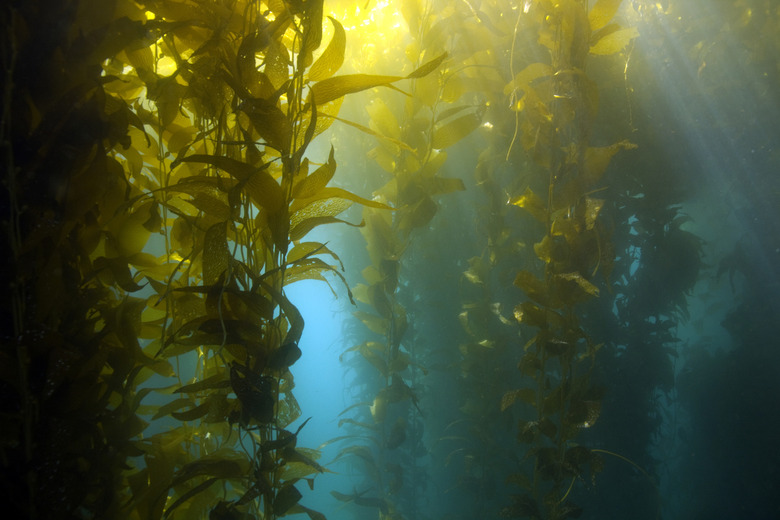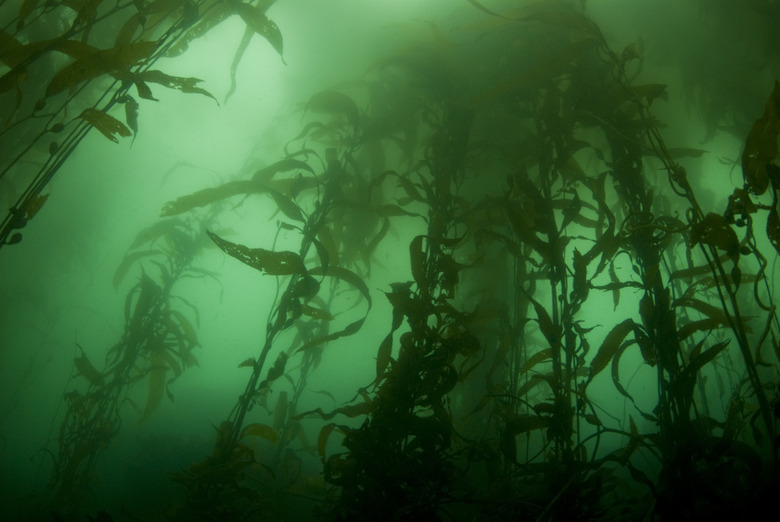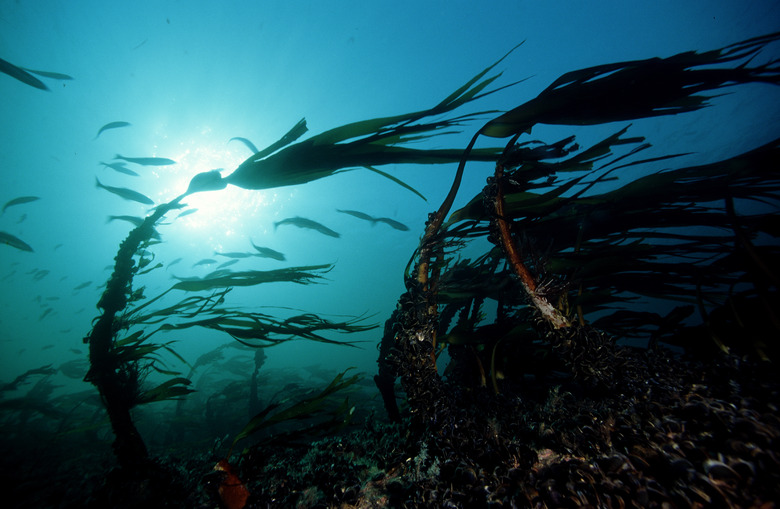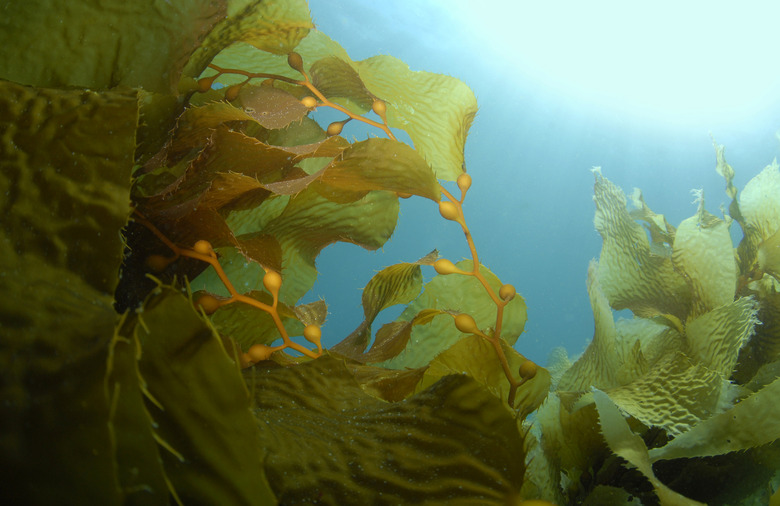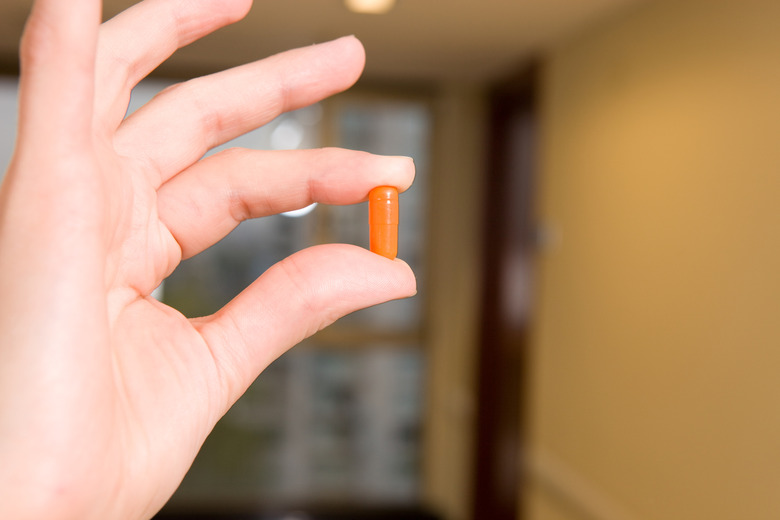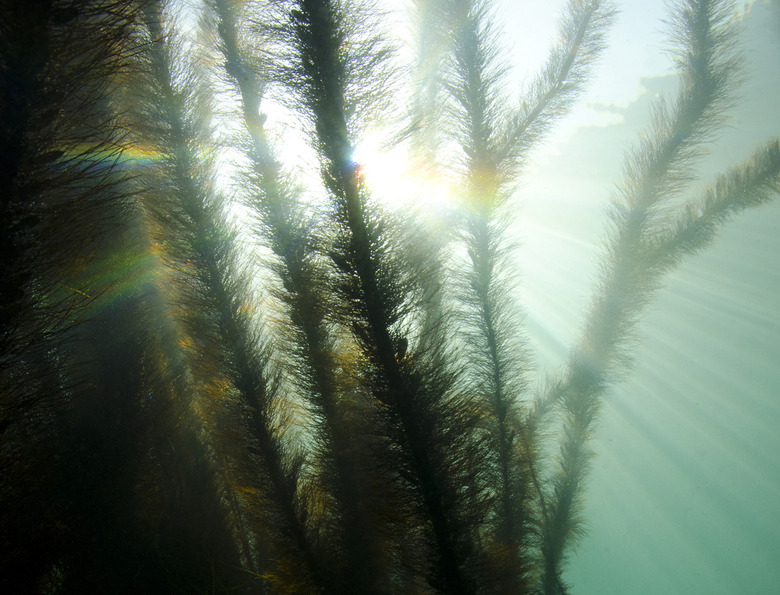Sea Kelp Facts
Sea kelp is seaweed or algae. The kelp scientific name is Laminariales. Some species of kelp form large forests beneath the shallow waters of the ocean. These areas are sometimes referred to as the rain forests of the ocean because of the great biological diversity within their midst.
Kelp is also an important resource for humans and is harvested for food, medicinal purposes and its uses in various products.
Biology
Biology
There are various species of kelp found along the coastlines of the world's oceans. One of the most interesting facts about kelp: the giant kelp species is one of the fastest growing plants in nature and can grow up to two feet per day!
Kelp grows at or below the low-tide level on the rocky seabed and extends to depths as far as sunlight can penetrate. Seaweed doesn't have a vascular system like other plants, but all parts of the kelp absorb the nutrients and gases that it needs to grow from the water in which it is immersed.
Kelp's Role in the Ecosystem
Kelp's Role in the Ecosystem
Kelp plays a major role in the marine ecosystem. It creates shelter for fish, like rockfish, huge sheephead and bright orange garibaldi. When you take a close look, you can find jeweled top snails and other small animals that eat detritus (waste or organic matter) on the blades. The density of kelp forests can create protection in storms for many animals and decrease the intensity of currents and waves.
The decline of sea otters in Southern California had a surprising effect on giant kelp forests. Otters attach their babies to kelp blades as they forage for food, and one of the sea otter's favorite food is the sea urchin.
Sea urchins devour kelp beds and can devastate a kelp forest. In the 1700s and 1800s, sea otters were almost hunted to extinction for their furs. With sea otters unable to control urchin populations, urchins mowed down kelp forests. The lack of kelp forests, in turn, did not help sea otter populations rebound. This is an example of what can happen when we lose a keystone species in an ecosystem.
Harvesting
Harvesting
Kelp is harvested from the ocean for a variety of purposes. Vehicles built especially for kelp harvesting are used in bringing the plants in from the ocean. A dredge rakes along the seabed and pulls plants from the rocky bottom. Areas are ideally harvested only once every four years to allow plants to regrow before more are taken. The kelp is then washed to remove sand, silt, shells and other debris, dried and processed.
Uses
Uses
Kelp is often added to foods and vitamins and is made into soups and other dishes in some cultures. Kelp is also used in the production of soaps and glass. A kelp-derived product is also used as a thickener in ice cream, jelly, toothpaste, breads, beer, pudding, salad dressing and other items. It is used in fertilizer, soil conditioners and some animal feeds. Kelp is also added to makeup, shampoo, facial masks, massage gels and other personal care products.
Medicinal
Medicinal
Kelp contains high concentrations of iodine, making it especially useful in treating a condition of the thyroid gland caused by lack of iodine. This condition, called goiter, has been treated with kelp for centuries. Kelp is also included in medicines that are used to treat tuberculosis, arthritis, colds, influenza and some infections.
Kelp is high in iron, sodium, phosphorus, calcium, magnesium, potassium, several vitamins and amino acids. It is a popular additive in vitamins and sometimes taken alone for these qualities.
Research
Research
Research is being conducted into using kelp in the treatment of breast cancer as well as in using it as a type of biofuel. The possibility of kelp as a dietary antioxidant in preventing aging and diseases also is being studied. Brown seaweeds are being found to have anti-tumor properties and may boost the immune system.
Kelp has also been found to have therapeutic effects in heart disease, high cholesterol and high blood pressure. Research may eventually lead to products containing seaweed to help those battling these conditions.
Cite This Article
MLA
Foster, Bethney. "Sea Kelp Facts" sciencing.com, https://www.sciencing.com/facts-sea-kelp-4739866/. 31 July 2019.
APA
Foster, Bethney. (2019, July 31). Sea Kelp Facts. sciencing.com. Retrieved from https://www.sciencing.com/facts-sea-kelp-4739866/
Chicago
Foster, Bethney. Sea Kelp Facts last modified August 30, 2022. https://www.sciencing.com/facts-sea-kelp-4739866/
